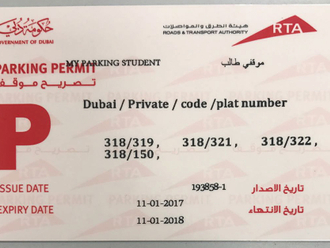Dubai: It’s called the ‘forgotten killer’ and not without reason. In just about everything we eat today, salt is stellar ingredient. And we are paying the price for it — hypertension, heart disease and a host of health conditions have their tie-ins with excessive salt consumption.
That’s the bad news. What’s worse news is that people continue to consume a third more salt than the maximum recommendation, said Dr Nausheen Khan, general practitioner, iCARE Multi-speciality Clinics, Dubai.
Sodium, the main component of salt, she says, is essential to human health however, excessive amounts of it can lead to a serious health trouble.
What compounds the problem is that in today’s times, overdependent as we are on packaged foods, salt is a hidden nasty in most foods.
“About three quarters of the salt people consume is hidden in processed food,” said Dr Khan.
“It is recommended that people eat no more than 6g of salt a day, which is about a teaspoon. Currently, people consume 8.1g a day, which is about a third more than the maximum recommendation.”
The main ingredient of salt is sodium, its level keeps on increasing as our salt intake increases. In order to dilute these excess amounts of sodium, our body holds on to water, thereby increasing the extracellular fluid and eventually leading to increase in blood volume.
Blood pressure can thus be raised owing to the extra fluid and extra strain on the delicate blood vessels leading to the kidneys. Increased blood volume increases the work of the heart and exerts pressure on the blood vessels. All this extra work and pressure can lead to stiffening of the blood vessels, which can ultimately lead to stroke, heart attack and heart failure.
One can only know about excessive salt intake by analysing their diet.
But in general, to know if you are eating too much salt as a habit, there are the signs:
1) Habitual eating out, and consuming pe-packaged foods, will make you exceed the daily salt limit.
2) If you continue this habit, you could experience symptoms of edema i.e swelling of the hands, arms, feet, legs and ankles which would ultimately
3) lead to the hardening of arteries and increased blood pressure.
4) A high-sodium meal e.g barbequed food, meals with MSG, crisps etc, can lead to thirst. It’s an indication you have eaten too much salt.
You could feel foggy if you are a regular high-sodium consumer.
5) If you are in the habit of using the salt shaker for every meal, you are bound to go overboard with daily requirement. For some people their food starts tasting quite bland, as their taste buds are used to sodium-rich foods.
6) African American, elderly, people with hypertension, diabetes and chronic kidney disease are very sensitive to sodium i.e their blood pressure rises and falls directly based on sodium intake.
The salt food pyramid
Go to this link to make your own healthy food pyramid based on sodium values
The other story of salt: a life saver
Truth is, salt is not the culprit, it’s we who make it look bad by eating too much of it
“A healthy body, on a balanced diet, will naturally excrete excess salt,” said Dr Nausheen Khan, iCARE Multispecialty Clinics, Dubai.
This, inarguably, is the best health tip you would have ever received. But, and this is the big question, how many of us have this kind of healthy body that can get rid of excess salt on its own and leave us free of all the various diseases high-salt consumption brings?
Truth is, salt is not the culprit. In fact, it is critical for good health. You can totally cut out refined sugar in your diet for health reasons but think twice when it comes to salt, said Dr Khan.
A gram of table salt is made up of 40 per cent sodium and 60 per cent chlorine. Both play a vital part in proper functioning of our body.
Nerve impulses are transmitted through the help of sodium. It also regulates electrical charges in and out of our cells and the body’s fluid balance.
“The most important role of sodium is that it helps in the contraction of our muscles, most importantly the heart muscle. Salt prevents our muscles from cramping. It keeps calcium and other minerals in the blood stream and also stimulates the adrenal glands maintaining blood pressure and electrolyte balance,” Dr Khan said.
“It is recommended to keep a daily intake of sodium to 2400mg/day. Deficiency of sodium or sodium levels below 135mEq/L (milliequivalents per litre) can cause brain cells to swell, causing altered mental status, lethargy and confusion.
“If the levels fall below 115mEq/L, stupor, muscle twitching or spasm, seizures, coma or even death can occur.”
Bottom line: It’s you who makes salt look bad by eating far too much of it,” said Dr Khan
20 Facts About Salt
1. Salt plays an important role in the prevention of heat prostration and sun stroke.
2. Plays a primary role in the process of digestion and absorption. Salivary Amylase is activated by salt, thus making us taste our food. Salt plays a vital role in digestion of food. It makes hydrochloric acid which is an important digestive enzyme that lines the stomach wall.
3. Important for the brain cells to function properly from birth to death.
4. Effective in stabilising irregular heartbeats. Along with water, it regulates blood pressure.
5. Important for balancing sugar levels in blood.
6. Important for local power generation at cellular level where energy is needed.
7. A strong natural anti-histamine, salt is helpful in clearing up congested sinuses. It helps in clearing the lungs of sticky phlegm and mucus plugs.
8. Helps in absorbing food particles through the intestinal tract.
9. Plays a vital role in balancing the production of saliva. If it were not for salt, excessive drooling could occur during sleep.
10. Prevents our body from getting muscle cramps by stimulating muscle contraction.
11. Firms up bones.
12. Regulates sleep and acts as a natural hypnotic.
13. Persistent dry cough can be controlled by placing salt on the tongue.
14. Sodium is found in many anti-aging creams. It defends against the free radicals that accelerate the aging process. It helps to restore a healthy, youthful skin.
15. Sodium helps in maintaining the acid base balance by altering the proportions of acid-base alkali phosphates in the body, in this way controlling the reaction of the kidneys and frequency and content of urination.
16. Sodium plays an important role in removing excess carbon dioxide in the body.
17. Sodium balances osmotic pressure in the human body by fluid regulation in cells.
18. Sodium helps to maintain normal contractions of the heart. It plays an extremely important role in maintaining blood pressure.
19. Expectant mothers need to maintain an adequate level of sodium in their body. If the mother has low salt levels, it would alter unborn child’s blood volume and could cause her own blood pressure to increase by making her blood thicker.
Salt facts in the UAE
UAE Health Ministry
Is working with various entities including the municipalities to come up with laws that will restrict the amount of trans fats and salt content in packaged foods
Dubai Municipality
Launched a new campaign 'Healthy is Easy’ in 2016 to urge hypermarkets to reduce salt in in-house food products.
Health Authority of Abu Dhabi
Launched a food certification programme, Weqaya. In addition to limiting fat and sugar, Weqaya specifies the maximum amount of sodium content for a number of food categories.
About 29 restaurants in Abu Dhabi currently use Weqaya labelling. The voluntary scheme was extended from the beginning of 2017 to include locally-made bakery and dairy products.






